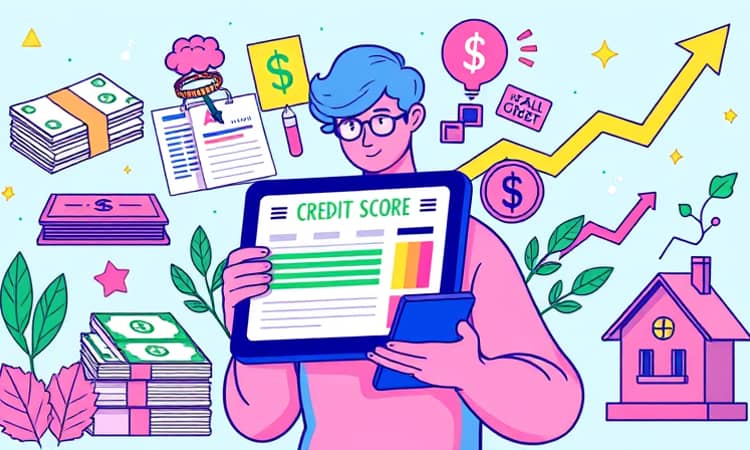Understanding the role of credit scores can significantly ease the process of obtaining a personal loan. A higher credit score not only simplifies your loan approval but also can save you money in the long run.
In this article, we will explore five key ways that your credit score impacts personal loan approval, providing you with essential insights to make informed decisions when seeking financing.
1. Interest Rates

One of the most immediate impacts of a credit score on your personal loan is the interest rate offered. Lenders assess your credit score to determine how likely you are to repay the loan. Higher credit scores typically indicate lower risk to lenders, leading to more favorable interest rates.
On the contrary, borrowers with lower credit scores face higher interest rates as lenders attempt to offset the risk of potential default. This means the total cost of borrowing can become significantly higher for those with poor credit histories.
- Higher credit scores often qualify for lower interest rates.
- Lower credit scores typically result in higher interest rates.
- A small difference in rates can lead to substantial extra payments over time.
Understanding how your interest rate can change with your credit score emphasizes the importance of maintaining good credit.
2. Loan Amount

Your credit score also influences the amount you can borrow. Lenders use credit scores to assess risk, which directly affects their lending limits. High credit scores signal that you are a responsible borrower, making lenders more willing to extend larger loans.
Conversely, if you have a lower credit score, lenders may impose stricter limits on how much they will lend you, which might hinder your ability to secure the financial support you need.
- Borrowers with excellent credit can often access higher loan amounts.
- Those with fair or poor credit may be capped at lower borrowing limits.
- Understand the lender's policy on borrowing limits to avoid surprises.
Being aware of these lending practices allows you to tailor your borrowing needs to your credit standing, potentially avoiding disappointments or financial pitfalls.
3. Loan Term

The length of the loan can also be affected by your credit score. Lenders favor borrowers with higher credit scores by offering them more flexible loan terms, including longer repayment periods and more favorable conditions.
On the other hand, those with lower credit ratings might find their options limited to shorter loan terms, which can lead to higher monthly payments and more significant overall costs.
4. Approval Chances

When applying for a personal loan, your credit score significantly affects your chances of approval. Lenders typically have minimum credit score requirements that borrowers must meet to qualify for financing. A higher score can enhance your likelihood of securing a loan, as it demonstrates a history of responsible borrowing.
Conversely, applications from individuals with lower credit scores might be denied outright or require more paperwork, delaying the process. Higher credit scores can also influence the speed at which loans are approved.
5. Flexibility and Southern Money Lenders

Regional lenders, such as Southern money lenders, often consider credit scores but can be more flexible in their lending criteria compared to traditional banks. In many cases, they take a more personal approach, which may benefit borrowers with less-than-perfect credit scores.
These lenders may offer tailored solutions based on individual circumstances, potentially resulting in better loan terms or higher approval rates for those with lower credit scores.
Tips to Improve Your Credit Score for a Personal Loan

Improving your credit score is crucial if you are looking to increase your chances of obtaining a personal loan. Start by reviewing your credit report for any inaccuracies that could be negatively impacting your score. Disputing erroneous information can quickly boost your credit rating.
Secondly, make timely payments on your existing debts. Payment history is one of the most significant factors influencing your credit score. Additionally, try to reduce your overall credit utilization by paying down credit card balances and keeping them low.
Consider diversifying your credit mix by including different types of loans. However, avoid applying for too many loans at once, as multiple credit inquiries can lower your score. Their cumulative effect can diminish your creditworthiness in the eyes of potential lenders.
- Check your credit report for errors regularly.
- Aim to pay bills on time every month.
- Lower your credit card balances to improve utilization rates.
By following these tips, you can gradually improve your credit score, enhance your chances of loan approval, and secure better loan terms.














